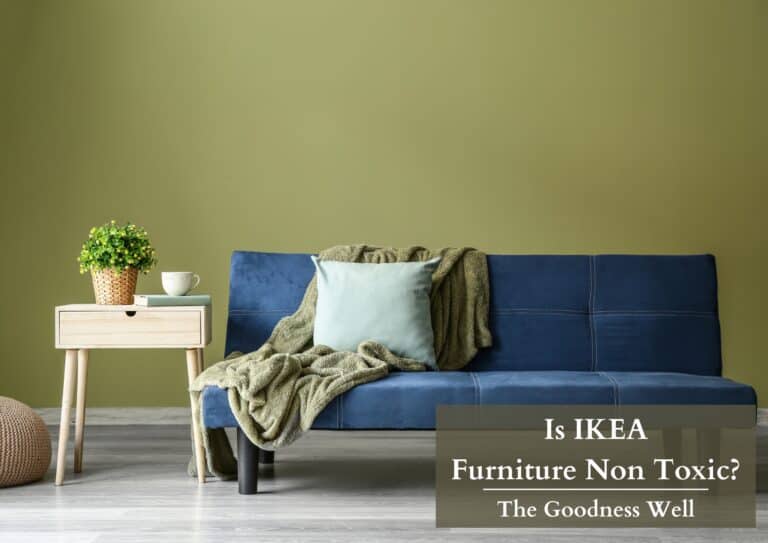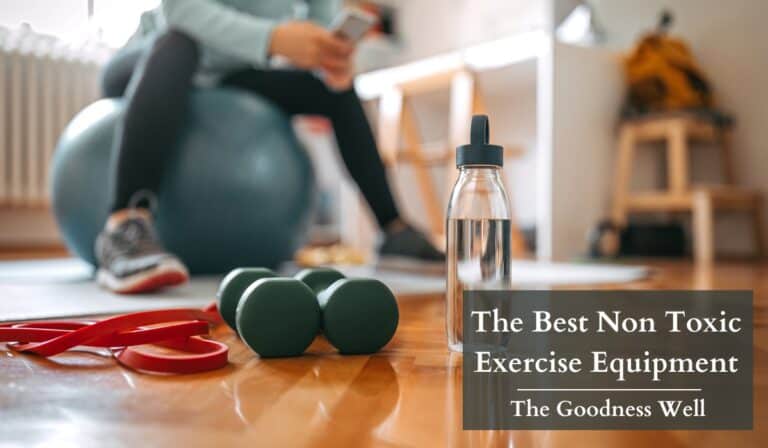How To Speed Up Off Gassing: 7 Easy Tips
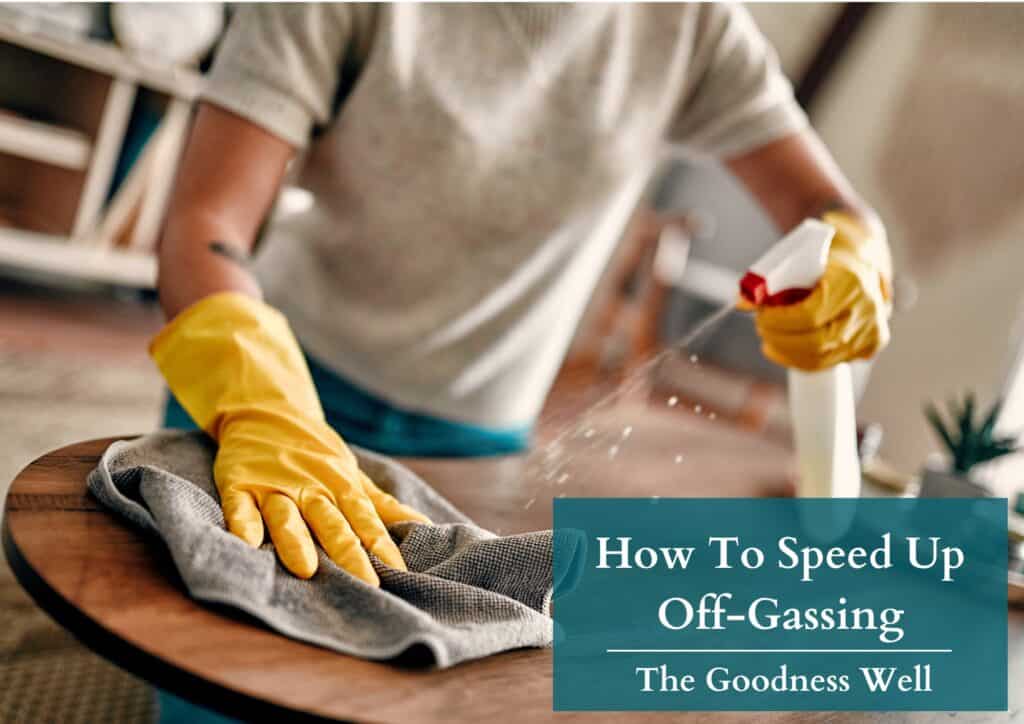
Whether you’ve recently purchased a new car or couch, or you’re simply cautious about the toxic chemicals around you, you’ll want to pay attention.
Having gone through the process ourselves, we understand the challenges and concerns with off-gassing, and we’re sharing our real-life solutions and experiences with you.
We’ve got all the tips on how to speed up off-gassing and lower toxic VOCs(Volatile Organic Compounds) around you.
TL;DR:
How to speed up off-gassing:
- Using sunlight or heat
- Improving ventilation
- Using activated carbon
- Air purifiers
- Non toxic furniture sealants
- Leaving furniture outside
- Baking soda
How to Speed Up Off-Gassing Furniture
1. The “Cookout” Method
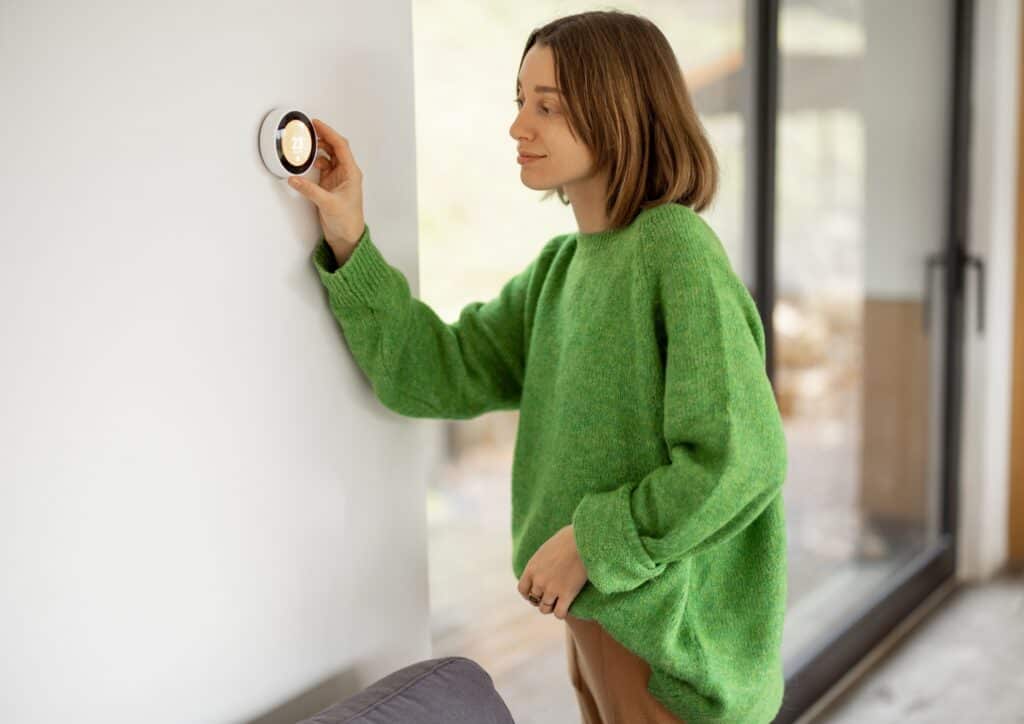
Since VOCs tend to off-gas in higher temperatures, we’re going to use that to our advantage in getting rid of them.
How? Follow this step by step.
- Close all the windows and turn up the heat for about 4-8 hours (the hotter the better).
- Be sure no one is in the home during this time and hide away any items you might not want VOCs to come into contact with. Close vents to other rooms you don’t want any VOCs in.
- Then open the windows to let all those yucky chemicals out. Easy as that.
How this works: Due to their high vapor pressure, VOCs (including formaldehyde) quickly turn into gas and spread into the air, a process that is amplified by higher temperatures.
This method is great if you just renovated or recently got new furniture that might have VOCs like formaldehyde in it.
If you’re concerned about off-gassing from particle board, there are several things you can do to speed up the release of volatile organic compounds:
2. Increase Ventilation
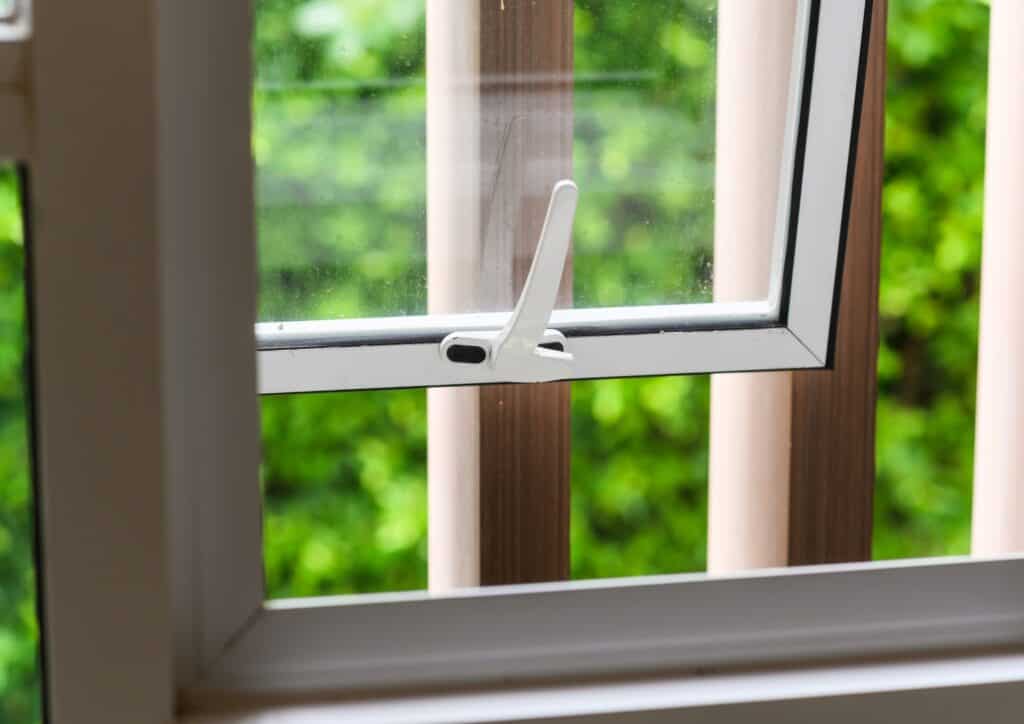
One of the most effective ways to reduce the concentration of VOCs in indoor air is to ensure good ventilation.
If you’ve just introduced a new particle board item into your home:
- Open windows and doors to allow fresh air in.
- Use fans to help circulate the air.
- Consider running an exhaust fan or a window fan to vent the indoor air outside.
How this works: Introducing fresh air dilutes the concentration of VOCs, prompting more of these chemicals to be released from sources like furniture due to the equilibrium principle.
Increased ventilation frequently replaces indoor air with outdoor air, consistently removing VOCs.
Enhanced ventilation not only speeds up off-gassing but also improves overall indoor air quality by decreasing other pollutants.
3. Use Activated Charcoal
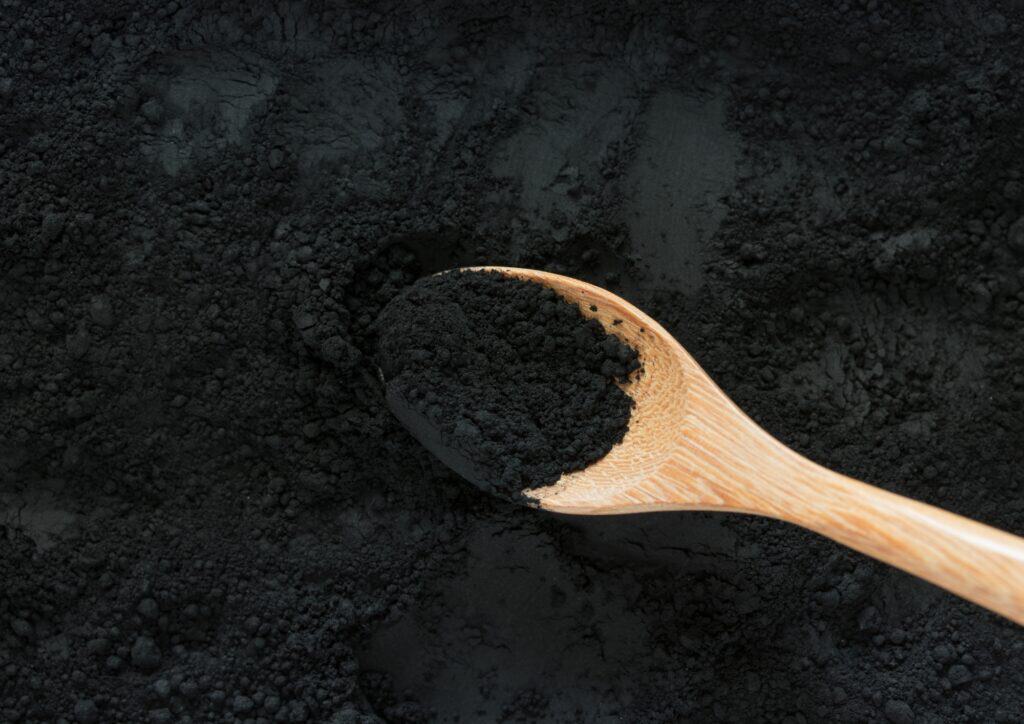
Activated charcoal (or activated carbon) is known for its ability to absorb a wide range of odors and chemicals, including formaldehyde.
You can place bowls of activated charcoal around the room or use activated charcoal air purifier bags to help absorb VOCs.
How this works: Activated charcoal effectively absorbs VOCs due to its porous structure and large surface area.
By capturing these compounds, it reduces the overall concentration of off-gassing pollutants in the air.
Consequently, using activated charcoal can accelerate the off-gassing process and improve indoor air quality.
4. Air Purifiers
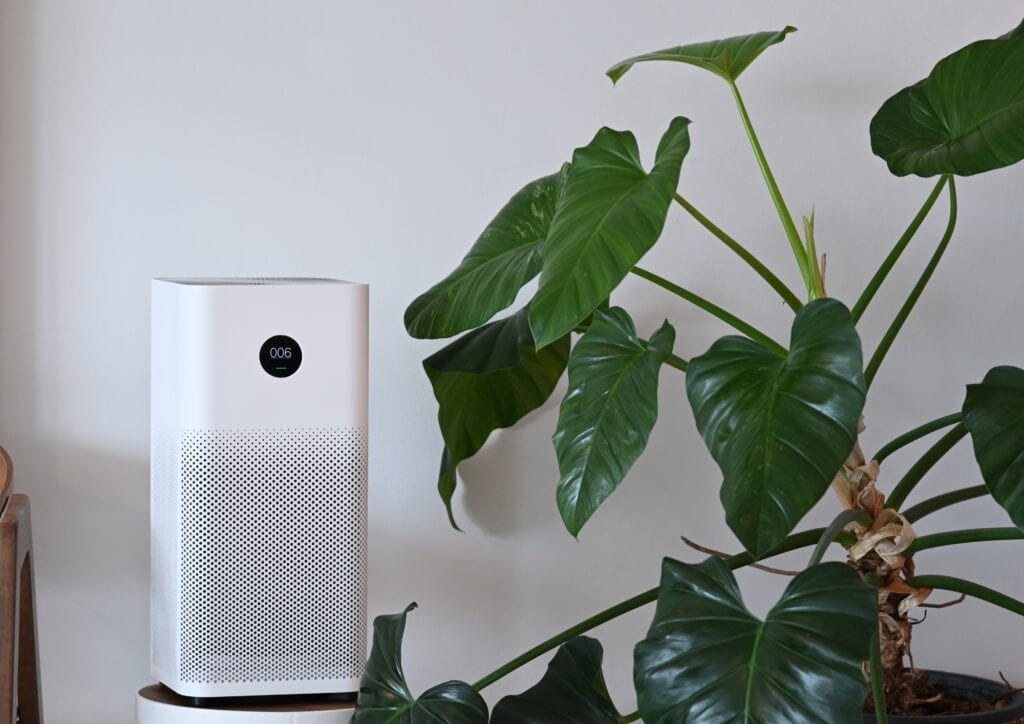
An air purifier equipped with a high-efficiency particulate air (HEPA) filter combined with an activated carbon filter can help capture and reduce VOCs in the air.
How this works: By continuously cycling and filtering the indoor air, it reduces the concentration of these compounds.
As a result, air purifiers reduce VOCs and enhance the quality of indoor air.
5. Seal the Surface
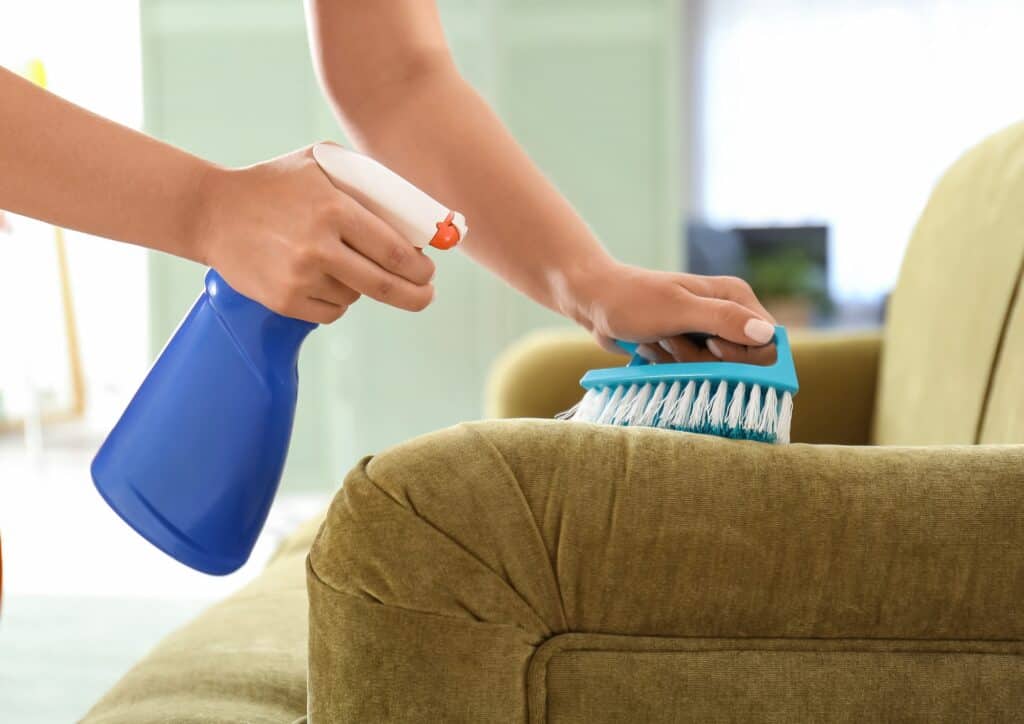
Another way to reduce off-gassing from particle board is to seal its surface.
This can be done using:
- Non-toxic, low-VOC sealants
- Specialized sealants designed to block VOC emissions.
How this works: Sealing the surface of furniture with a low-VOC sealant creates a protective barrier that traps or limits the release of VOCs from the furniture into the air.
By restricting the off-gassing at its source, the overall concentration of VOCs in the indoor environment is reduced.
6. Leave Items Outdoors

Leaving particle board furniture or items outdoors (in a covered but well-ventilated area) for several days to a few weeks can help reduce the off-gassing significantly before the item is brought inside.
How this works: Leaving furniture outside exposes it to open air and increased ventilation, which significantly dilutes the concentration of VOCs.
The large volume of outdoor air, combined with natural elements like wind, helps to rapidly disperse and carry away off-gassing pollutants.
7. Baking Soda
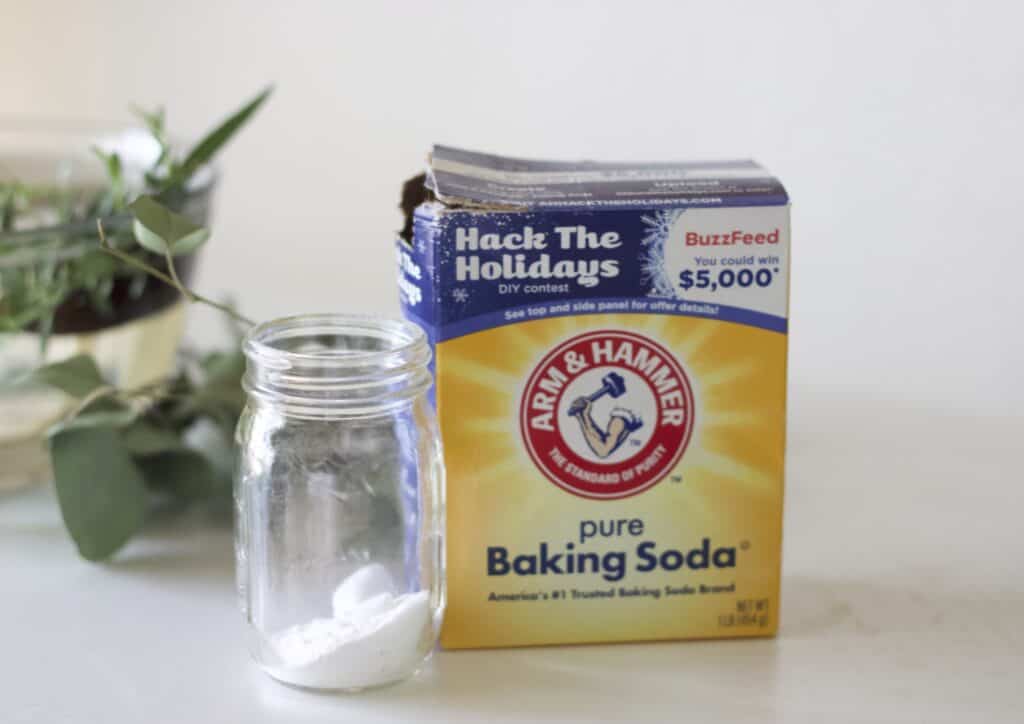
Baking soda, or sodium bicarbonate, is a well-known deodorizer. It’s also effective in absorbing some VOCs, which makes it useful in the off-gassing process.
You can use baking soda to speed up off-gassing by following these steps:
- Step 1: Vacuum the furniture or the rug first to remove any dust or dirt.
- Step 2: Sprinkle a generous amount of baking soda over the surface.
- Step 3: Allow it to sit for several hours or overnight for maximum absorption.
- Step 4: Thoroughly vacuum the item again to remove the baking soda.
How this works: Baking soda’s alkaline nature and porous structure enable it to capture and retain a range of acidic compounds, including many off-gassing pollutants.
By drawing out and neutralizing these compounds, baking soda can speed up the off-gassing process and reduce the overall concentration of VOCs emitted from the furniture.
With a combination of the methods listed above, you can reduce the impact of off-gassing in your living space.
How Long Does Off-Gassing Last?
Some products might off-gas quickly within a few days, while others, especially certain types of furniture, can take weeks, months, or even years.
Factors include the type of product, the chemicals used, and the environment it’s in (temperature, humidity, ventilation).
Final Thoughts💭
Understanding how to speed up off-gassing, its potential risks and solutions can make your home a lot safer.
Remember that while this might be a temporary inconvenience, ensuring the health and safety of your household is the real priority.
Try these tips to speed up off-gassing as quickly and safely as possible.😎


